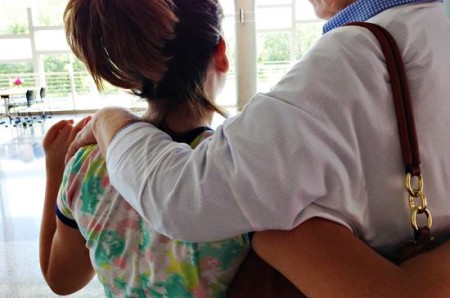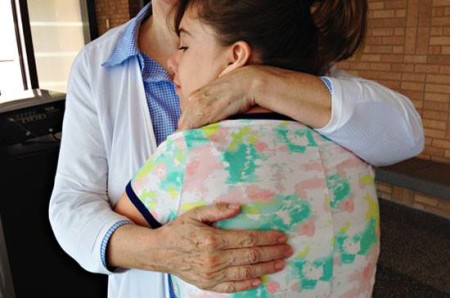As a culture, we place an almost magical value on the words “I love you.” They are words that should not be said until you REALLY mean them. . . whatever that means to you. They are words that cement a relationship and imply commitment. But we also use those words incredibly flippantly. I love that hamburger. I love this show. I’m in love with my new sandals. The words “I love you” can mean everything and nothing depending on the context. We feel free to express our love for things or celebrities we’ll never meet or vacation locations, but when it comes to people in our lives we can be much more cautious.
Because we place so much value on saying “I love you” only when we mean it and at the right time, it can feel tricky to decide when to tell your foster child you love them. I think the concerns about doing it break down into three categories: concern for the child’s heart, respect for the biological family, and self-protection.

Photos by Rebecca Tredway Photography
This child is likely a temporary addition to your family. It can feel unkind to tell a child we love them if they are just going to be with us for a short time. We don’t want them to think people who love them will always leave them. We’re worried about the message that sends. Is telling them we love them a promise we’re making that we know we can’t keep? Will we break their hearts when it’s time for them to go? Will the pain be harder and deeper because we told them we loved them and now we’re abandoning them?
And what about the family they came from? Do we put the child in an awkward position when we tell them we love them? We don’t want them to feel pressured into responding that they love us too if that makes them feel disloyal to their family. We worry that if the parents knew we loved their child, they might feel hurt. This is an awkward dance of wanting to support the family, but also connecting with their child and loving them as our own.
But I think the biggest concern is really for ourselves. If I say out loud that I love this child, I’m admitting this situation has the power to break my heart. If my friends and family know I love this child, they’ll begin to fear for me and the heartache that’s coming and they may say unkind things about a biological family they know little about. If I love this child, I may move from being an unbiased participant in the process to a passionate advocate. Love always brings with it the potential for pain and in foster care it doesn’t just feel like potential, it feels like a foregone conclusion.
There is also a chance we may not “love” this child the way we imagined we would. Foster kids are like all kids– they can be annoying, needy, sassy, manipulative, and whiney. And that’s the best case scenario. Because of the trauma they’ve experienced they can have much deeper wounds and much greater walls than your average kid. The coping skills they learned in an unhealthy environment can make it tough for them to acclimate to a healthy one. Sometimes it isn’t that you don’t want to tell them you love them, the reality is you don’t actually love them. . . at least not yet.
Foster Parent, I have been there.
My first introduction to loving someone else’s child was through group home work with primarily teenage boys. We found some kids we instantly connected with in spite of their difficult behaviors and some kids were more of a challenge. For the children that were easy for me to love, it was easy for me to tell them I loved them. Although it felt awkward at first, I knew it was true and it was good for them to hear it. For the kids I had a harder time with, I found myself withholding.
One night I was going room to room, saying goodnight to our boys. As I closed the door to the room of one of our older and harder to deal with boys, I realized I didn’t say “I love you” to him. I hadn’t felt guilty about that before because it didn’t feel authentic for me to say it. But that night I stopped and put myself in the position of that young man. And I realized I was being a jerk.
. . . To finish reading, click over to Her View From Home. . .


One Comment
Leave a reply →